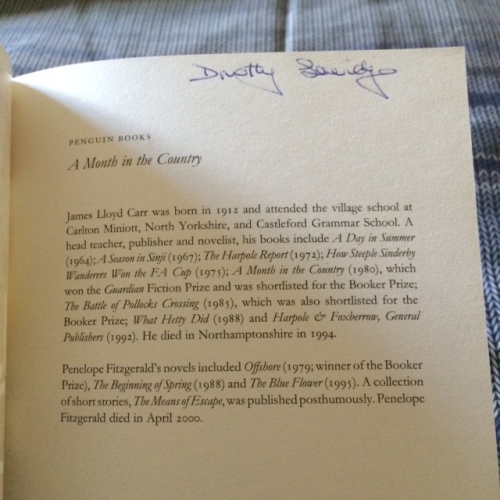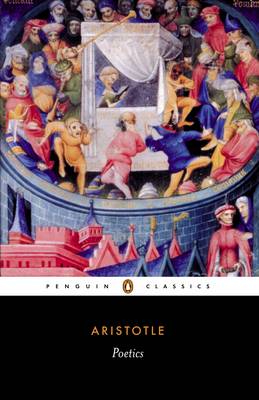Writing about certain books can sometimes be a trepidatious thing. Susan Hill’s I’m the King of the Castle is one such example for various reasons. There is the fact that this has become a modern classic to the extent that is had been on the English syllabus for years, which also adds the threat that some youths might head here and think I know what the heck I am talking about and use me as part of their exam answers (if only the internet had been in existence when I was at school, I am so old) or coursework. Then there is the fact that Susan Hill is one of my favourite contemporary writers and so I put pressure on myself. Really I have to ignore all that, think ‘sod it and hurrah’ and, because this is a blog diarising my reading thoughts and adventures and not some lit-crit site, just write about the book – which I loved.
When Joseph Hooper inherits the decaying familial home, a Victorian mansion called Warings, he feels he is finally the ruler of his domain. This all changes when his father advertises for someone to come and take care of the house and keep an eye on Edmund (despite the cold relationship they have he can clearly see Edmund is turning into an odious little oik) at the same time. The arrival of Mrs Helena Kingshaw is a double triple blessing as not only is she ideal she is also very becoming and has a son, Charles, who can become a new playmate for his own boy. Yet Edmund has taken a similar stance to Warings, with his father away so often he believes he is in charge of the house, likes it that way and isn’t keen on change.
‘Oh – what is it, what have you found?’ She was anxious that he should like it here, should very soon feel at home.
Kingshaw thought, I didn’t want to come, I didn’t want to come, it is one more strange house in which we do not properly belong. But he had dropped the lump of plasticine. ‘Nothing, it’s nothing. It’s only a pebble.’
Walking behind his mother, into the dark hall, he managed to open out the scrap of paper.
‘I DIDN’T WANT YOU TO COME HERE’ was written.
‘Now let me show you to your rooms,’ said Mr Joseph Hooper.
Kingshaw stuffed the message fearfully into his trouser pocket.
Edmund plots and creates as many cunning and diabolical horrors as he can (one involving a stuffed crow was my personal favourite) to try and get rid of Charles, not understanding that Charles would like nothing more to run away from this place and soon starts to plan just that. After a first humiliating attempt to flee, Charles soon ventures into (the perfectly named) Hang Wood with Edmund in hot pursuit. Once lost in Hang Wood the roles of power reverse as they become lost and cracks in Edmund’s domineering persona start to break. But can Charles resist revenge and can a bully like Edmund ever really change?
Many people say that I’m the King of the Castle is a case study in the cruelty that children can inflict on each other. (And kids can be bloody horrid to one another, I was bullied mercilessly by some horrors –who weirdly couldn’t understand why I didn’t want to befriend them on Facebook a few decades later anyway, this isn’t a therapy session for me it’s a review.) In some ways, particularly with Edmund Hopper who I thoroughly enjoyed despising, that is the case but I think there is a lot more going on with this novel than just that.
In Edmund and Charles I felt Susan Hill creates the typical bully and the typical, and unfortunate, victim. The question it made me ponder were if children are naturally born into those roles in life or if the environment they are brought up in, be it place or how they are treated. Yes that old chestnut, the nature vs. nurture debate. Is Edmund a rotten so and so because he is allowed to be and because his father had a bad relationship with his father? Has Charles been molly coddled by his mother as he has been moved from pillar to post? Is it class? Or were these two boys just born with brains that developed their psyches into such? I can’t answer any of those questions (sorry to all you students hoping to copy and paste, ha, I admire your tenacity though) but it didn’t make me think about them.
A theme I picked up strongly on, and I actually think is the more powerful message from this book (aside from don’t be a bullying menace) is the fact that children are too often not listened to enough. There is the old adage that children should be seen and not heard, this takes that further to a level of neglect or naivety as two parents ignore their children’s thoughts and feelings too busy caught up in their own. Yet how often does this happen in real life? Hill amplifies the expression children hear of ‘not now’ as Mr Hooper and Mrs Kingshaw are blinded by love/lust, or potentially money and status, I could never quite work Mrs Kingshaw out. How is a child left feeling when they aren’t heard?
This is one of Susan Hill’s masterstrokes with I’m the King of the Castle she has an incredible insight and empathy with younger people. Unlike the parents of the piece she doesn’t patronise, simplify or underestimate the lengths that both of these boys, who are polar opposites in character, will go to. She also looks at those moments of pure darkness and those of pure kindness without shying away from them and the effect of all this is quite something.
The boy looked towards the bed. His skin was already dead, he thought, it is old and dry. But he saw that the bones of the eye-sockets, and the nose and jaw, showed through it, and gleamed. Everything about him, from the stubble of hair down to the folded line of sheet, was bleached and grey-ish white.
‘All he looks like,’ Edmund Hooper said, ‘is one of his dead old moths.’
Finally, and most importantly for me, what made me love this novel is that it is overall simply a brilliant dark gothic yarn. It has a grumbling old house complete with collections of old moths, it has a brooding wood, it has an evil cunning child, psychological warfare, vengeful crows, a wicked sense of humour and an ending that will leave you feeling emotionally bruised and with questions that cause a sense of unease to linger on your psyche. It is not a book that wants to be nicely wrapped up and dependent on its reader will leave you feeling hopeful or a small sense of dread at what might come after. I was in the latter category, which probably says quite a lot about me.
Having read it I can completely understand why I’m the King of the Castle has become a modern classic and why it is being taught all around the UK, though I am thinking most parents should be given this around their first child’s ninth birthday too, just as a small warning. Ha! Not only is it a fantastic gothic story, it is one of the best insights into being and understanding a child’s mind that I have read. Yup, even better than Lord of the Flies, possibly because it is on a smaller and I think more intense scale. If you haven’t read it yet then I strongly recommend that you do.
I should add I chose this book for an episode of Hear Read This, if you would like to listen to Rob, Kate, Gavin and my additional thoughts head here. Who else has read I’m the King of the Castle and what did you make of it? Have any of you had to study that and how was it compared to reading it because you just wanted to?

























 Technically ‘Love in a Cold Climate’ is a sequel to the wondair (those of you who love Mitford will know what I mean)
Technically ‘Love in a Cold Climate’ is a sequel to the wondair (those of you who love Mitford will know what I mean) 

